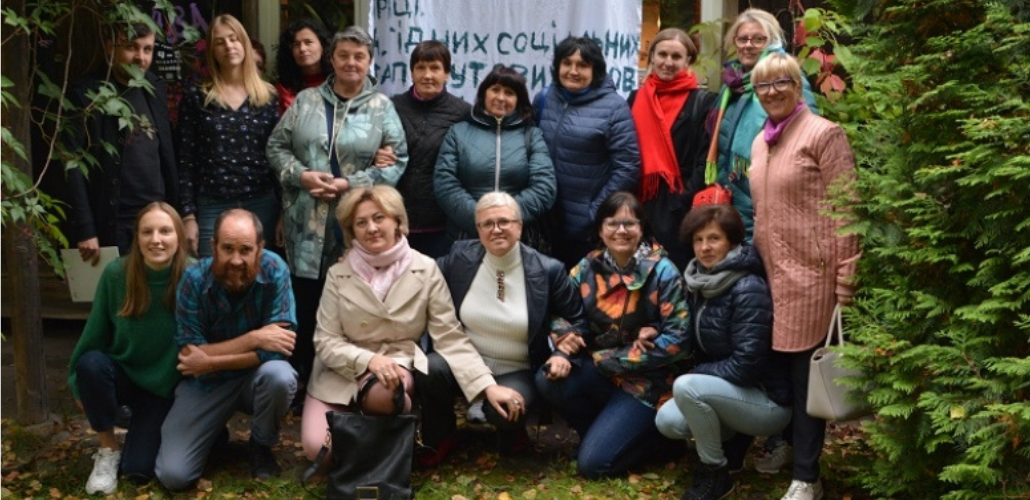Solidarity in Wartime: Interview with a Ukrainian Union Leader

These domestic workers are among the Ukrainian migrant workers already in Poland. Last year they formed Poland's first union structure for domestic workers, modeled on organizing by immigrant women in the U.S.; read more here. The Russian invasion means many more Ukrainian workers will become refugees in Poland, exposed to workplace exploitation. Photo: OZZ Inicjatywa Pracownicza
Ignacy Jóźwiak of the Polish union Workers' Initiative interviewed Witalij Machinko, leader of the Workers’ Solidarity Trade Union in Kyiv, Ukraine, on February 27. This interview comes to us via the International Trade Union Network of Solidarity and Struggle. It has been translated through Polish and French, and we apologize for any errors in the process.
Even before the current crisis there were a large number of migrant Ukrainian workers in Poland; several years ago Polish unions worked together with Machinko's organization to establish a Ukrainian Workers’ Trade Union in Poland, with the goal of improving their working conditions and raising their salaries to achieve equal pay for Polish and foreign workers by 2017. –Editors
Ignacy Jóźwiak: Witalij, first of all, tell us what is the current situation of workers in Ukraine. What are your union members doing?
Witalij Machinko: Some go to work and some stay home or hide in bomb shelters. Some are trying to go to Poland; others have gone to Western Ukraine to stay with their families.
Are they going to work?
Yes, war does not give you leave from work. Those who have not left, and for whom circumstances permit, are working. Even on the territory controlled by the Russian Federation.
What is the current situation of workers in Ukraine?
It is very bad. The situation of workers and their rights will now be the last concern of all.
So what role can unions play in these difficult wartime conditions, and how can we support you?
I see two main lines of support. The first concerns the protection of Ukrainian refugees and Ukrainian migrants in Poland. And the second is fundraising for citizens who remained in Ukraine and became refugees or remained in territories where hostilities are taking place.
As for Poland, unfortunately, a large part of Polish companies will try to take advantage of the context. Refugees from Ukraine do not know the regulations and do not speak the language, so the situation is very difficult. They will be forced to accept jobs different from those they had. I am very concerned about this huge illegal exploitation that will be made of our fellow citizens of Ukraine. With such an influx of refugees, this problem will be much more acute than in 2015 and 2016. That is why we need the help of Polish trade unions and European trade unions in general to help Ukrainian workers to protect their rights. I hope there will be as little need for your help as possible.
The second direction in which the Polish trade unions could help us is the organization of the delivery of basic necessities, essential medicines which are already essential in Ukraine and will be even more so in the near future. If we take our 14-year experience in Donbass and apply it to the current situation in Ukraine, in big cities like Kiev and Kharkiv where hostilities are ongoing, with the level of population it will be a huge catastrophe. If these actions are extended for another week, we will have a major humanitarian crisis, which has already begun. You have to try, even if you can’t prevent it, at least to minimize it. This is why I hope for the help of the European trade unions.
Second question, what would you like to say to trade unions and people from left movements in Poland, Europe, and the world?
I would like to ask everyone to support Ukraine, to support Ukrainian refugees, Ukrainian migrants, and to help everyone in Ukraine. Stay with us. Together we will win. It is important to send a clear signal to employers that there will be no room for their possible unfair practices. They must be afraid of this: we are already angry now, do not annoy us even more.





